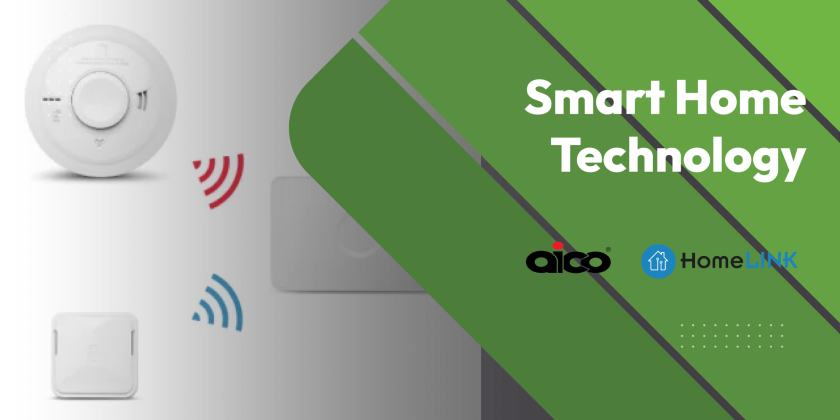Harnessing the sun’s energy has never been more important than it is today, as we strive towards a more sustainable future. Solar power technology has advanced rapidly, offering panels that are more efficient and powerful than ever before. These cutting-edge solar panels are transforming the way we think about renewable energy, providing both households and businesses with reliable and clean power sources. In this post, we will delve into the latest developments in solar panel technology, highlighting the most powerful options available on the market. Join us as we explore how these innovations are paving the way for a greener tomorrow.
Understanding Solar Power Basics
Understanding how solar power works is essential for anyone considering this renewable energy source. As solar technology becomes more widespread, knowing its fundamentals can help in making informed decisions.
How Solar Panels Work
Solar panels are devices that convert sunlight into electricity. They comprise photovoltaic cells, typically made from silicon. Photovoltaic cells work by absorbing photons and releasing electrons, creating an electric current. This process is known as the photovoltaic effect.
-
Light Absorption: Sunlight hits the solar panels and is absorbed by the photovoltaic cells.
-
Electron Excitation: The energy from the light excites electrons in the cells.
-
Electric Current Generation: Excited electrons flow through the cell, generating direct current (DC) electricity.
-
Conversion to AC: An inverter converts DC into alternating current (AC), which powers household appliances.
Understanding these steps helps in grasping how solar power is harnessed and used efficiently.
Key Benefits of Solar Energy
Solar energy offers numerous advantages, making it an attractive option for many. Firstly, it is a renewable resource, meaning it won’t deplete over time.
-
Environmental Impact: Solar energy reduces carbon footprint and greenhouse gas emissions.
-
Energy Independence: It decreases reliance on fossil fuels, enhancing energy security.
-
Cost Savings: Lower electricity bills and potential government incentives make solar power financially appealing.
-
Minimal Maintenance: Solar panels require little upkeep, making them convenient.
These benefits highlight why solar energy is a vital component of sustainable living.
Common Misconceptions Debunked
Several misconceptions about solar energy persist, often deterring potential users. It’s important to address and debunk these myths.
A common misconception is that solar panels only work in sunny climates. In reality, they produce electricity even on cloudy days, albeit at a reduced rate. Another myth is the high cost of solar panels. While initial costs can be significant, long-term savings and incentives often offset these expenses.
-
Solar Panels Aren’t Durable: Panels are designed to withstand harsh weather.
-
Complex Technology: Installation and operation are straightforward.
Understanding the truth behind these misconceptions can help individuals make informed decisions about adopting solar technology.
The Evolution of Solar Panel Technology
Solar panel technology has come a long way since its inception. The journey from basic photovoltaic cells to today’s cutting-edge solutions reflects significant advancements and innovations.
Advancements in Photovoltaic Cells
Photovoltaic cells have seen remarkable advancements. Early solar panels had low efficiency, but today’s cells are far more effective at converting sunlight to electricity.
-
Monocrystalline Cells: Offer higher efficiency and space efficiency.
-
Polycrystalline Cells: Cost-effective with decent performance.
-
Thin-Film Technology: Flexible and lightweight, ideal for versatile applications.
These advancements have made solar panels more accessible and efficient, driving widespread adoption.
Improved Efficiency and Performance
The efficiency of solar panels has steadily improved, thanks to technological innovations. This enhancement has made solar energy more viable for a wider audience.
-
Higher Conversion Rates: Modern panels can convert up to 22% of sunlight into electricity.
-
Durability Enhancements: Panels now have better resistance to environmental factors, increasing longevity.
-
Temperature Coefficients: Advances in materials have reduced the impact of temperature on performance.
Improved efficiency directly translates to more energy savings and a faster return on investment for users.
Notable Innovations and Trends
Recent years have seen several innovations and trends that have shaped the solar industry. These developments have broadened the scope and application of solar power.
-
Bifacial Panels: Capture sunlight from both sides, increasing energy yield.
-
Perovskite Cells: Offer potential for higher efficiency at a lower cost.
-
Smart Technology Integration: Allows for better monitoring and optimisation of solar systems.
Keeping abreast of these trends can provide insights into future solar energy developments and adoption.
Top Solar Panels on the Market
Market-leading solar panels reflect the pinnacle of efficiency and performance. Understanding the options available is key to making a sound investment in solar technology.
Leading Panel Manufacturers
Several manufacturers stand out in the solar panel industry. Companies like SunPower, LG, and Panasonic are renowned for their high-quality panels.
-
SunPower: Known for high-efficiency panels with robust warranties.
-
LG: Offers reliable panels with excellent performance metrics.
-
Panasonic: Provides versatile solutions with a focus on sustainability.
These manufacturers are pivotal in advancing solar technology through innovation and quality.
Performance Metrics and Comparisons
Evaluating solar panels requires understanding key performance metrics. Efficiency, output, and durability are critical factors to consider.
|
Manufacturer |
Efficiency |
Warranty |
Price Range |
|---|---|---|---|
|
SunPower |
Up to 22% |
25 years |
High |
|
LG |
Up to 21% |
25 years |
Medium |
|
Panasonic |
Up to 20% |
25 years |
Medium |
Comparing these metrics helps in identifying panels that meet specific requirements and budgets.
Cost-Effectiveness and Value
The cost-effectiveness of solar panels is a major consideration for potential buyers. While initial costs can be steep, the long-term value is significant.
-
Return on Investment (ROI): Typically achieved within 5-10 years.
-
Government Incentives: Can reduce upfront costs significantly.
-
Energy Savings: Lower electricity bills over the lifespan of the panels.
Understanding these factors can help in evaluating the financial viability of investing in solar technology.
Choosing the Right Solar Panel
Selecting the right solar panel involves careful consideration of various factors. Making an informed decision ensures the maximum benefit from solar technology.
Factors to Consider
Several factors should guide the choice of a solar panel. Understanding these can lead to a better investment.
-
Efficiency and Output: Higher efficiency means more electricity generation.
-
Durability and Warranty: Longer warranties provide peace of mind.
-
Space and Aesthetics: Consider the available space and visual preferences.
These considerations can help align the choice of solar panel with specific needs and circumstances.
Installation and Maintenance Tips
Proper installation and maintenance are crucial for optimal solar panel performance. Here are key tips to ensure efficiency and longevity.
-
Professional Installation: Ensure panels are installed by certified professionals to guarantee safety and efficiency.
-
Regular Cleaning: Keep panels free of debris and dirt for maximum efficiency.
-
Monitor Performance: Use monitoring systems to track panel output and identify issues early.
Following these tips can ensure that solar panels operate effectively over their lifespan.
Maximising Energy Output
Maximising energy output from solar panels involves strategic planning and management. Here are ways to optimise solar energy usage.
-
Optimal Positioning: Position panels to receive maximum sunlight throughout the day.
-
Energy Storage: Use batteries to store excess energy for later use.
-
Smart Technology: Employ smart inverters to optimise energy distribution.
Implementing these strategies can enhance the overall efficiency and benefit of solar power systems.
The Future of Solar Energy
The future of solar energy holds immense promise, with emerging technologies poised to revolutionise the sector. Understanding these trends can shape how we approach solar power in the coming years.
Emerging Technologies on the Horizon
Several emerging technologies are set to transform solar energy. These innovations promise greater efficiency and broader applications.
-
Organic Photovoltaics: Offer flexibility and potential for lower costs.
-
Quantum Dot Technology: Enhances light absorption and conversion efficiency.
-
Floating Solar Farms: Utilise water surfaces for large-scale solar installations.
These technologies represent the cutting edge of solar innovation, pointing to a bright future for renewable energy.
Potential Impact on Global Energy Needs
Solar energy is poised to play a crucial role in meeting global energy needs. Its potential impact is substantial, offering sustainable solutions to energy demands.
-
Reducing Carbon Emissions: Solar power can significantly cut greenhouse gases.
-
Energy Access: Provides electricity to underserved regions.
-
Economic Growth: Drives job creation and technological advancement.
The widespread adoption of solar energy could transform the global energy landscape, making it more sustainable and equitable.
The Role of Solar in Sustainable Living
Solar energy is integral to sustainable living, offering a clean and reliable power source. Its adoption contributes to a greener and more sustainable lifestyle.
-
Energy Independence: Reduces reliance on non-renewable resources.
-
Sustainable Communities: Supports eco-friendly living practices.
-
Climate Change Mitigation: Plays a part in reducing the effects of climate change.
Incorporating solar energy into daily life is a step towards a more sustainable and environmentally friendly future.


